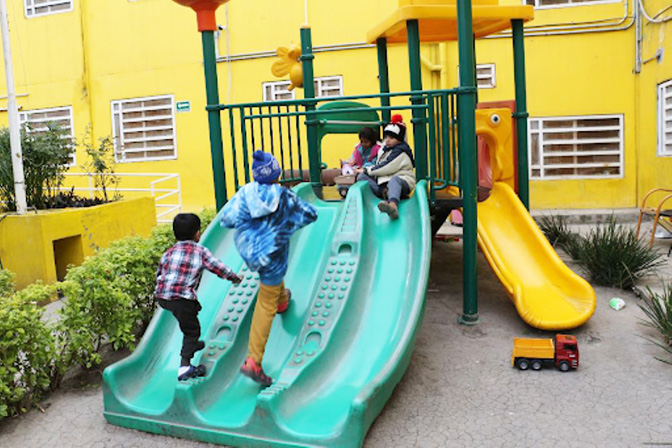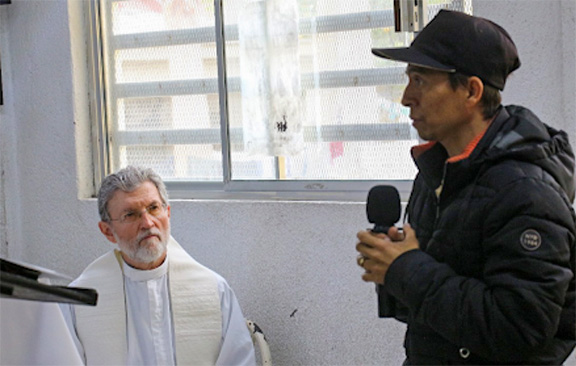~ by Julieta Valdez, National Catholic Reporter
The Archdiocese of Monterrey, Mexico, founded Casanicolás in 2004. “Just as the Mexican government demands a just treatment of our emigrants in the United States, it should respect the rights of those who come from Central America,” Msgr. Luis Eduardo Villarreal, then director of social ministry for the archdiocese, said at the time.
Casanicolás provides shelter, medical and legal support to thousands of Central and South American migrants every year.
Casanicolás is an apostolate of the parish of Saint Frances Xavier.

 Casanicolás, named after St. Nicholas of Tolentine, includes 130 beds across three buildings, one for women and two for men.
Casanicolás, named after St. Nicholas of Tolentine, includes 130 beds across three buildings, one for women and two for men.
Monsignor Luis Eduardo Villarreal, ordained 42 years ago, has been the parish priest of the Church of San Francisco Xavier, a few blocks from Casanicolás.
“Our migrants arrive in Casanicolás worn out and traumatized by the mistreatment they receive in national territory. Here in Mexico is where the migrants suffer the most on their journey. Extortion, kidnapping, robbery, beatings, threats…it’s hell,” Villarreal said.
The priest is also a professor at Universidad Libre de Derecho, a law school, where he teaches socioeconomic problems of Mexico and oversees an immigration law clinic.
“The migrant is a good person who contributes work, culture, and life projects to places where he or she arrives; the rest are myths and not realities,” he said.
“Casanicolas’ vision is to humanize human mobility,” said Philippe Stoesslé, professor-researcher of law and social sciences at the University of Monterrey.
“I admire Monsignor Luis Eduardo. Having achieved so much, he is an extremely humble person. He is very close to his parishioners and the migrants at the shelter,” he said.
“Villarreal has taught me a deep understanding of Christian mercy, which includes welcoming migrants, but also one that includes protection, security, warm human treatment, guidance and spiritual accompaniment, knowing the people by name and not just as numbers.
“He has a vision of mercy, empathy, infinite compassion and human rights. He is sensitive to the protection and promotion of human rights, which goes hand in hand with his Christian profile of guaranteeing dignity to all human beings,” Stoesslé said.
From 2019 to 2023, Casanicolás has sheltered 4,000 to 7,700 migrants per year. Since 2021, the number of adults accompanied by minors has increased.
Villarreal told NCR that Casanicolás’ fundamental purpose is theological.
“We want to give a response to the Gospel, because we believe in the project of the Gospel,” he said. “A project of brotherhood and solidarity between one and other. And this shelter is a sign that it is possible that the last shall be the first.”
To read the full account, please click here
